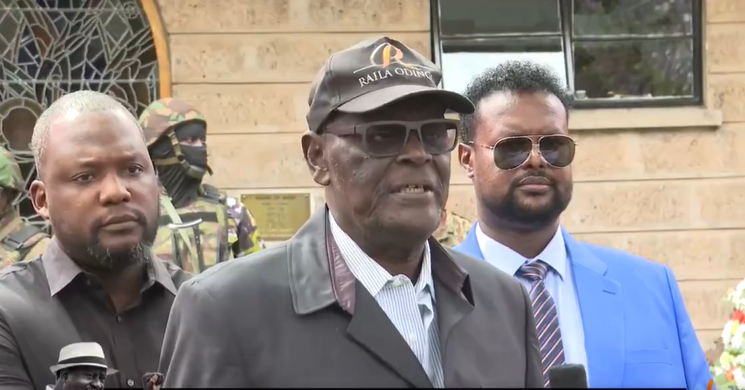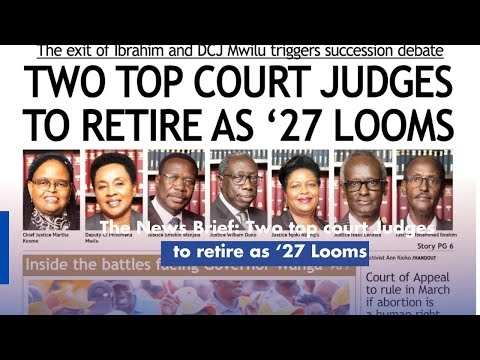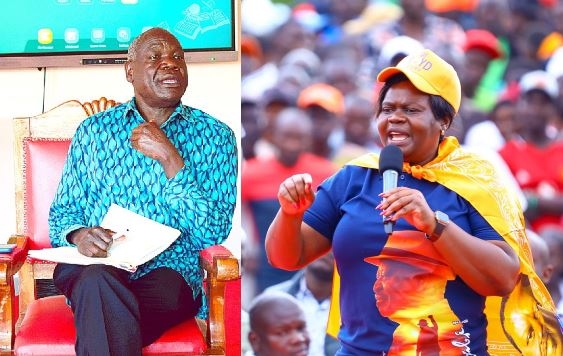
 Former Westlands MP Fred Gumo speaks to the media outside lee Funeral Home on Thursday, October 17, 2025. /SCREENGRAB
Former Westlands MP Fred Gumo speaks to the media outside lee Funeral Home on Thursday, October 17, 2025. /SCREENGRABFormer Westlands MP Fred Gumo has said the death of former Prime Minister Raila Odinga marks the beginning of the end for many political careers that flourished under his shadow.
Raila, who died aged 80, was a towering figure in Kenya’s political landscape — a man whose influence transcended party lines and generations.
For decades, he was at the centre of Kenya’s struggle for democracy, good governance and social and political liberation—a stance that often put him at crossroads with governments of the day.
His ability to mobilise and inspire loyalty among supporters made him not only a formidable opposition leader but also a kingmaker whose endorsement could determine political destinies.
News of his death struck the nation hard, triggering an outpouring of grief across the country.
From the streets of Nairobi to the villages of Nyanza, Kenyans mourned in unison, reflecting the deep emotional connection many felt with the veteran politician.
Ordinary citizens, businesspeople, and high-ranking leaders alike joined in mourning the man they fondly called Baba (Father).
But Gumo, a longtime ally and one of Raila’s contemporaries, offered a sobering reflection on the political ramifications of Raila’s death.
Speaking to the press on Thursday before the arrival of Raila's body from India, the veteran politician said some of those seen weeping most loudly were mourning more than just the man—they were mourning their own political futures.
“Ukiona watu wengine wakilia usifikiri ati wanalia tu; anajua shida imeingia (When you see some people crying, don’t think they are crying for nothing; they know trouble has arrived),” he said.
Gumo added that many politicians had built their careers entirely around their proximity to Raila—benefiting from his popularity, political machinery, and unwavering grassroots support.
With his passing, he said, those careers may now face an uncertain future. “Kwa hivyo yeye kuenda ameenda na wengi (So, in his going, he has gone with many),” he remarked.
The former outspoken legislator, known for his blunt political style, likened Raila’s demise to a flooded river breaking its banks and sweeping away everything in its path.
His words underscored how deeply Raila’s influence permeated Kenya’s political ecosystem.
“Kwa hivyo, ukiona watu wanalia, shida iko mbele (So when you see people crying, it means trouble lies ahead),” Gumo said as he sent his condolences to the Odinga family.
Raila’s leadership career spanned more than four decades, during which he endured detentions, political betrayals, and electoral defeats—yet remained the face of Kenya’s democratic struggle.
From his role in the fight for multiparty democracy in the 1980s and 1990s to his push for constitutional reform and devolution, his impact shaped nearly every major political transition in the country.
Gumo’s remarks tap into a long-running reality of Kenyan politics where alliances, patronage, and loyalty often define survival.
For many, Raila’s political machinery provided both protection and relevance.
Ironically, some of those who benefited from his political relevance were from the opposing camps—they were majorly elected to office for merely being his fiercest critics.
His death, therefore, could signal a major realignment in the country’s political landscape as leaders who depended on his influence recalibrate their positions ahead of future contests.
As Kenya prepares to lay Raila to rest at his Bondo home, tributes continue to pour in from across the globe, celebrating a man remembered as a fearless defender of democracy and a symbol of resilience.
Yet beneath the tears and tributes, as Gumo observed, lies a quiet reckoning for many whose political fortunes could be on the brink of extinction.

















